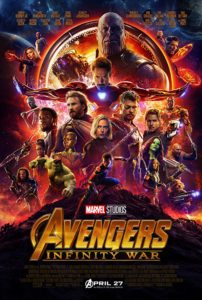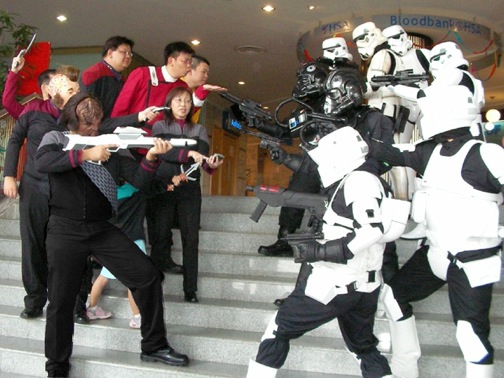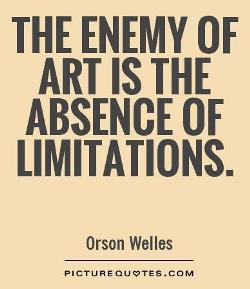
It’s been a while since I blogged, so I figured a review of the biggest nerd movie of 2018 would be a great way to get back into the swing of things.
To quote Buzz Lightyear, “To Infinity…and beyond!”
This is the best Marvel Cinematic Universe film. Ever. Of all time. (Well, for now, anyway). For the first time, I went into an MCU movie not sure what to expect, and after seeing it, I’m unsure what Marvel will do next because there’s a lot of things they could do. Even with my knowledge of the comics that inspired this film (The Infinity Gauntlet and, to much lesser extent, Infinity War), I’m not sure what will happen next. With Disney trying to finalize a deal to buy out 20th Century Fox, that means Marvel will reacquire the film rights to the X-Men and Fantastic Four. The possibilities are endless!
I was concerned that Thanos wouldn’t be a villain worthy of a decade of build-up.
Boy, was I wrong.
He has eclipsed Loki as the best villain in the MCU. He’s altered from the comics, which is understandable given that what comic fans love about Thanos was developed for many comics over many years, and that’d be hard to condense into a film that’s already huge. Heck, he’d need his own movie to get there. He’s gone from a lovesick Eternal trying to win the affections of Mistress Death to a madman with a noble cause. There’s even some tenderness from him. Josh Brolin’s performance with the mo-cap is incredible. I never thought I was watching a special effect.
My sister described the film as “a bit ADD.” I can see why. At 2 ½ hours, it’s a long movie with 64 characters from 18 other films. Yet while it bounces back and forth between several groups of characters, I never felt like it shortchanged anyone or was moving too fast. Everyone gets a moment of awesomeness. The film masterfully juggles several tones, including traditional superhero, mythic, and space opera comedy. They all blend perfectly. I attribute this to the Russo Brothers and screenwriters Christopher Markus and Stephen McFeely, who might be the best creative team in the MCU.
Without giving any spoilers, this is a film that will shock audiences. Even I was taken aback by the ending. I knew it had to happen, since I knew this was part one of a two-part story and I’ve read the comics, but it still surprised me with how boldly un-Hollywood-like it was. It didn’t affect me as much as Logan did, but that was a superhero film about finality. There isn’t nearly as much of that here.
I want to see this in IMAX. I bet it would look great. I don’t normally see movies more than once in a theatre, but this is one I’d gladly see again. That’s how much I love it.
My only problem with the film is it does and doesn’t stand alone. While it explains the many characters just enough to give context, you have to have seen a lot of the previous MCU films to understand it fully. The more you’ve seen, the more you’ll get out of it.
My opinion of this film may change with more viewings. Right now I’m just basking in the excitement.
To summarize: It’s one of the best superhero films ever made.
What’d you think of Avengers: Infinity War? Feel free to leave comments—including spoilers—below. I could talk about this film for hours and would love to include you all in the conversation.







